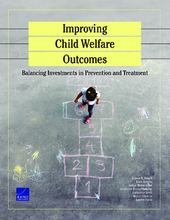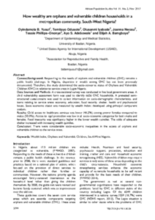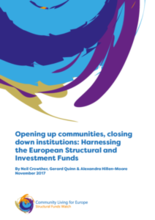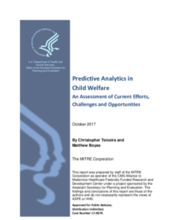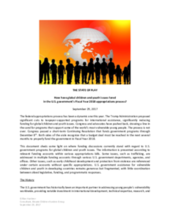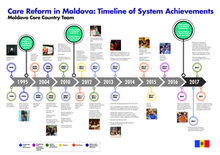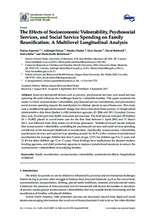Displaying 111 - 120 of 189
This study is the first attempt to integrate maltreatment risk, detection, pathways through the child welfare system, and consequences in a comprehensive quantitative model that can be used to simulate the impact of policy changes.
The objectives of this study are to: use the methodology of a 2007 study to establish foster care minimum adequate rates for children (MARC) based on the child's age and geographical location in every state; update the MARC with cost of living adjustments to 2016; examine changes in gaps between the MARC and the current foster care rates; and identify states that have made increases to their reimbursement rates, relative to the MARC over time.
The objectives of this study are to: use the methodology of a 2007 study to establish foster care minimum adequate rates for children (MARC) based on the child's age and geographical location in every state; update the MARC with cost of living adjustments to 2016; examine changes in gaps between the MARC and the current foster care rates; and identify states that have made increases to their reimbursement rates, relative to the MARC over time.
This study determined the socio-economic status of Orphans and Vulnerable Children (OVC) in relation to service areas in Lagos Nigeria.
This report from Community Living for Europe: Structural Funds Watch reviews findings of an examination of the EU financial framework as it relates to the promotion of community-based care of children and adults and offers key recommendations for the EU and Member States to facilitate the transition from institutional to community-based care.
This document explores the state of the use of predictive analytics in child welfare by conducting an environmental scan of child welfare agencies, academia, nonprofit organizations, and for-profit vendors in the United States.
This document sheds some light on where funding discussions currently stand with regard to U.S. government programs for global children and youth issues.
This infographic provides a historical timeline of the alternative care reform process in Moldova, marking key achievements in the establishment of policies, guidelines, procedures, and programs to improve the quality of care and protection for children without adequate family care.
This paper examines the extent to which socioeconomic vulnerability, psychosocial service consultations, and preventative social services spending impacts the reunification for children placed in out-of-home care.
This paper examines the extent to which socioeconomic vulnerability, psychosocial service consultations, and preventative social services spending impacts the reunification for children placed in out-of-home care.

